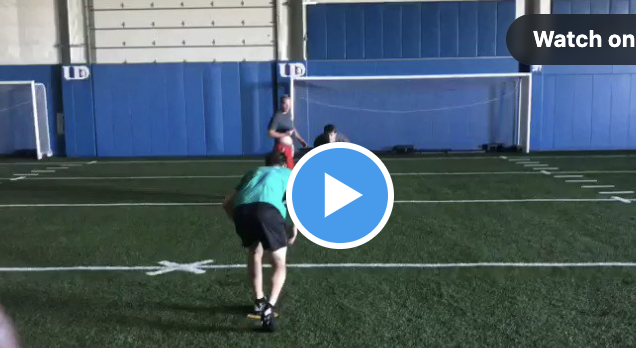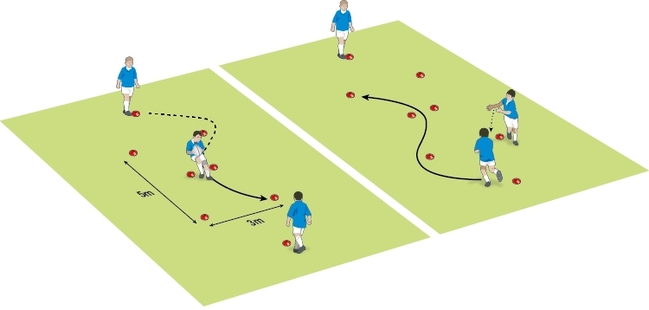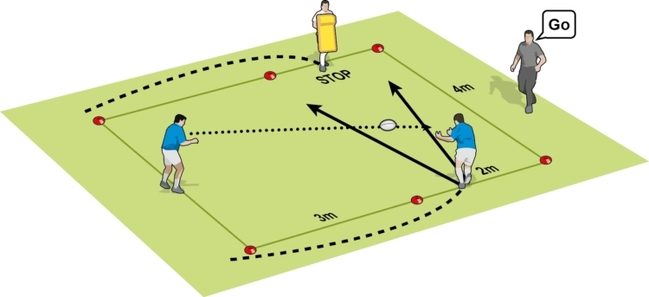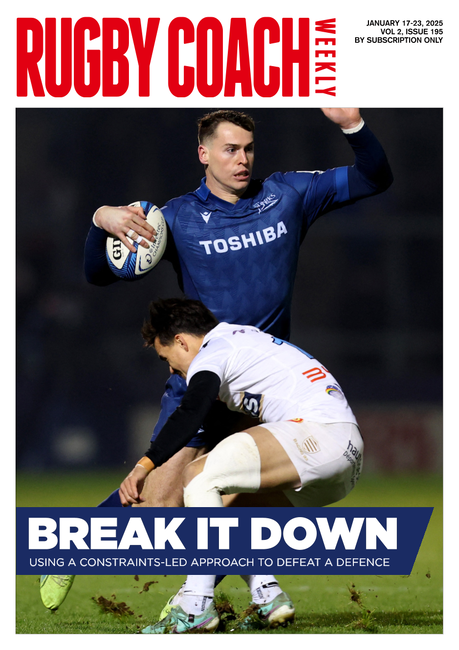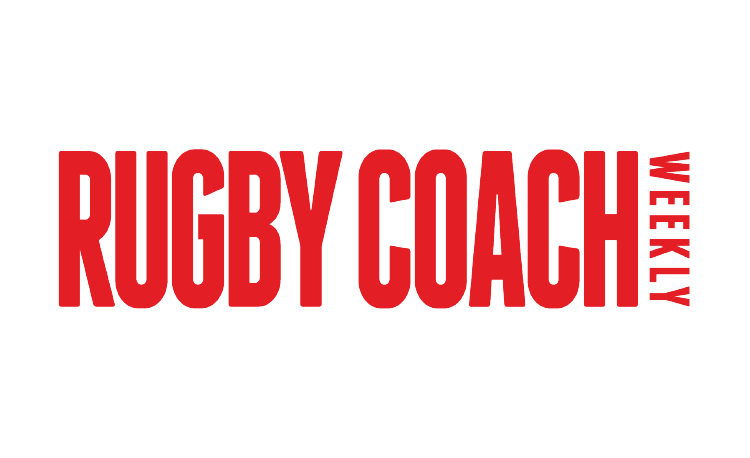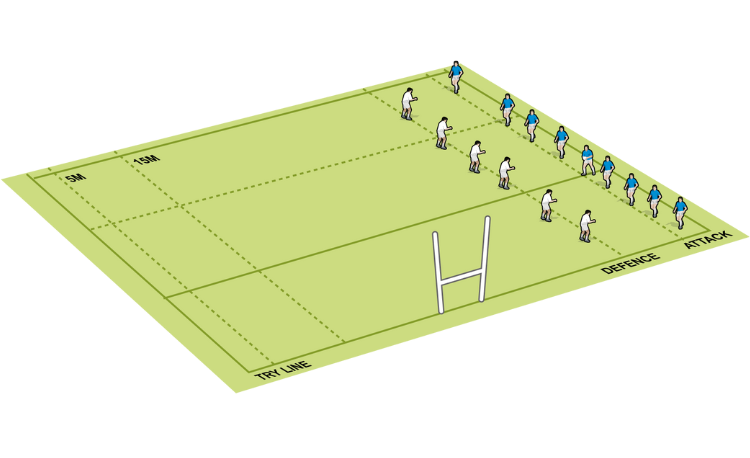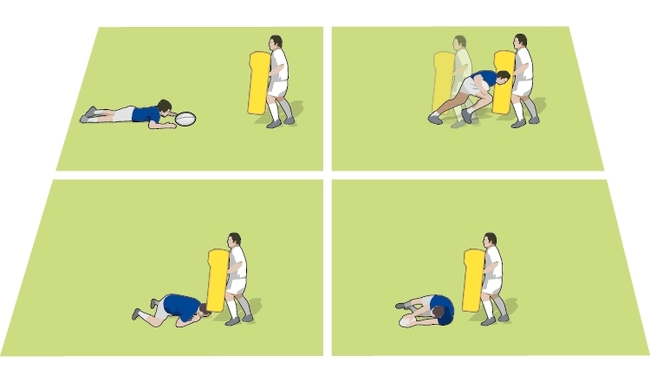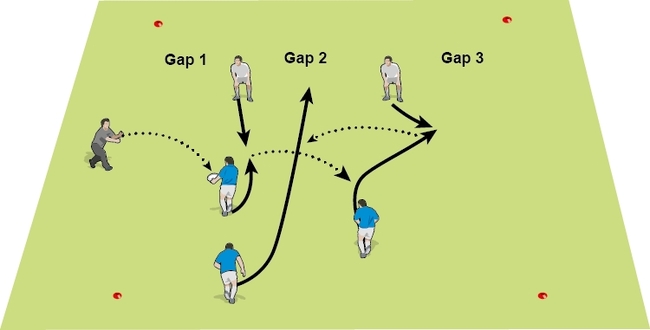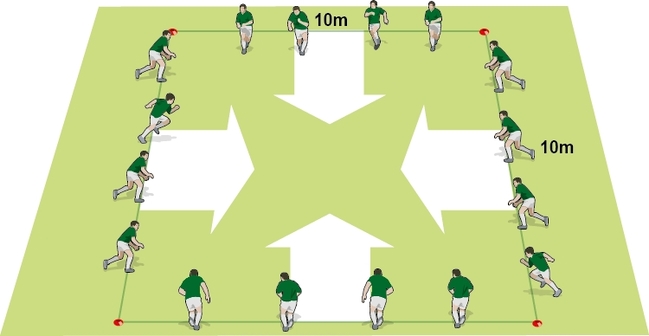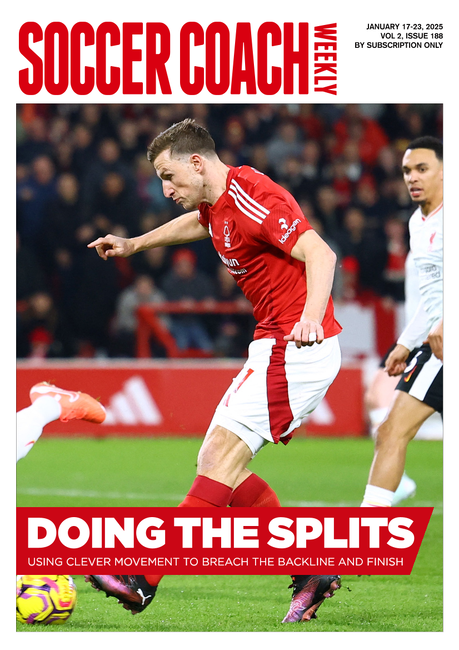Evasion skills warm-ups and games
Evasion is a fundamental movement skill. Players use in pretty much all their activities, without necessarily focusing on the specific skills they need.
Without becoming too bogged down in the technical requirements, you want to improve your players starting and stopping, balance, change of direction and acceleration. With that comes an awareness of space, time, teammates, the opposition and the ball.
There are three approaches you can take: Work on general movement skills, develop a specific movement skill (like a side-step or spin) or pose problems for the players to discover their own movement solutions.
Underpinning this, you need to understand your own players’ capabilities and limitations.
Here are some warm-up exercises where you can place a little more emphasis on how the players respond to movement cues and clues. Nearly of all of them include a ball.
Go-forward evasion goes to one of the main rugby principles of why we want better footwork - to go forward towards the opposition try line. This exercise builds up to game-like scenarios, so you can just use the first activity for your warm-up if you want.
Evasion is means you need to evade something. Step to the edge creates a visual clue of what to avoid. Players have to adjust to what’s in front of them, while still going forward.
If you want something a bit more chaotic, an old favourite of mine is Reaction squares. This has the players stopping, starting, changing angles, bending down and looking for space.
Finally, here’s a bunch of games and competition to up your players’ heart rates while developing evasive movement skills: Fun footwork games for really energised practices.
Newsletter Sign Up
Coaches Testimonials

Gerald Kearney, Downtown Las Vegas Soccer Club

Paul Butler, Florida, USA

Rick Shields, Springboro, USA

Tony Green, Pierrefonds Titans, Quebec, Canada
Subscribe Today
Be a more effective, more successful rugby coach
In a recent survey 89% of subscribers said Rugby Coach Weekly makes them more confident, 91% said Rugby Coach Weekly makes them a more effective coach and 93% said Rugby Coach Weekly makes them more inspired.
Get Weekly Inspiration
All the latest techniques and approaches
Rugby Coach Weekly offers proven and easy to use rugby drills, coaching sessions, practice plans, small-sided games, warm-ups, training tips and advice.
We've been at the cutting edge of rugby coaching since we launched in 2005, creating resources for the grassroots youth coach, following best practice from around the world and insights from the professional game.
